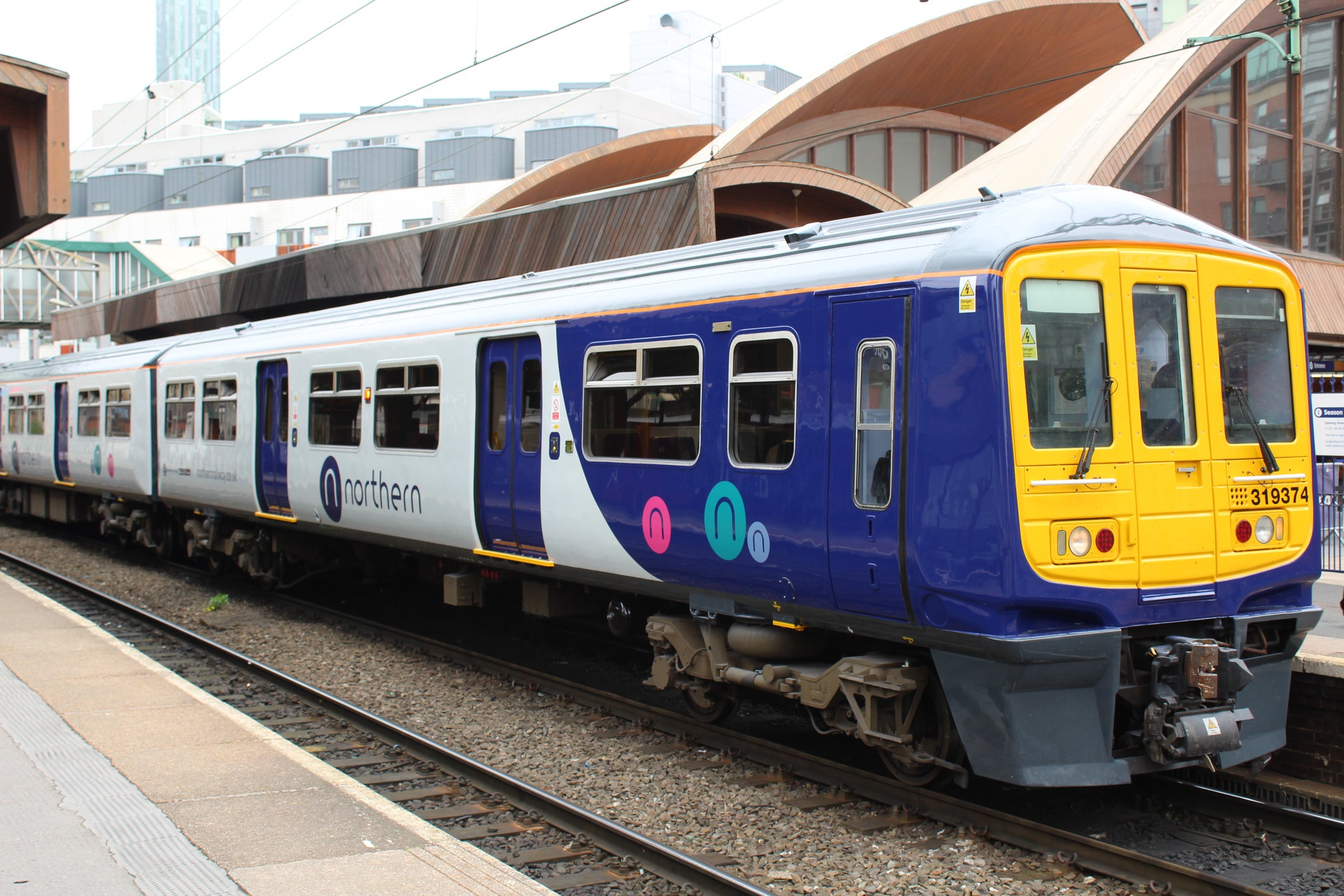Chris Grayling needs to rise to the challenge of sorting out our railways
The transport secretary is already as busy as a platform announcer trying to keep up with the cancellations at Manchester Piccadilly. Now comes the Heathrow expansion

So far from the Northern Powerhouse once promised by a Conservative government, it is quite difficult to find a train running to time in the north of England. A disastrous reworking of the timetable – a tricky but not man-on-the-moon sort of challenge – has resulted in nothing short of chaos on the tracks.
Even Chris Grayling, who will probably be the last person left in the country who thinks privatising the railways was a success and is prepared to say so, has had to condemn the private operators and ask for an inquiry. Promises made to him were broken, he says. Well, there seems little doubt about that. After all, if the bosses at Northern Rail and Govia, who have perpetrated a similar calamity on southern English commuters, had casually told Mr Grayling in all honesty that they were about to discredit him and his transport policy, and sacrifice scores of Tory marginal constituencies across the North and the home counties into the bargain, he might have offered some resistance.
He is right to feel sore, but not as bitter as people whose lives have been made a misery by such unresponsive and incompetent rail firms.
Mr Grayling, then, is already as busy as a platform announcer trying to keep up with the cancellations at Manchester Piccadilly. Yesterday he sketched out another series of challenges – the daunting task of seeing the third runway at Heathrow up and running. No need to check the departure board for that one just yet; it will be a decade or so before the first passengers are cleared for takeoff. If the legal changes and political difficulties drag things out – and there will be at least one general election during the planned work – then it might be the 2020s before the calls to the gates commence.
The North cannot wait, neither for its trains to be fixed nor for the new runway at Heathrow to add to its connectivity to the rest of the country and the wider world. To be fair, nor should other regions of the UK have to wait. As Mr Grayling noted in his Commons statement, they too deserve to enjoy the kind of global network that Heathrow provides to help bring jobs and prosperity to Scotland, Wales, Northern Ireland and the Southwest. For some reason, Mr Grayling singled out Newquay airport as a new dynamic centre of activity. He was wise enough not to christen it the epicentre of a new Southwestern Powerhouse.
One of the few things that the government has got right, in principle at least, is the importance of infrastructure investment. Developing the UK’s road and rail systems are one obvious way of addressing Britain’s miserable long-term productivity record – from which so much else, notably stagnant wage growth – flows.
Second, and no less obviously, Brexit poses such a danger to the UK’s economic future that any opportunity that can clearly mitigate its dire consequences has to be seized. The chancellor, Philip Hammond, “gets” this, as does Mr Grayling, and the funds flowing into new schemes are substantial and very welcome – both the high-profile schemes such as Crossrail, Crossrail 2 and HS2, as well as the Heathrow expansion; but also smaller-scale projects that will yield a handsome dividend, such as the so-called Varsity rail line between Oxford and Cambridge.
Brexit has long threatened to blot out any other political debate and crowd out almost every other piece of normal legislation. With the loss of Theresa May’s majority in the election last year, the usual cycle of lawmaking based on a winning manifesto was also disrupted for self-inflicted reasons. Time must be found for the Heathrow expansion to take place – and with sufficient safeguards already in place on air quality, local traffic congestion, emissions targets and so on to guarantee as rapid and consensual a passage of the Heathrow bill through the Commons as possible.
Mr Grayling may soon also have to find some time for immediate measures to deal with the very real crisis on the railways; if needs be via a temporary nationalisation of the franchises. Andy Burnham, the mayor of Greater Manchester, says the mess needs to be cleared up now, and he is right. Mr Grayling occupies one of the most crucial posts in the cabinet; he will need to demonstrate he is up to the job, for a change.
Join our commenting forum
Join thought-provoking conversations, follow other Independent readers and see their replies
Comments
Bookmark popover
Removed from bookmarks